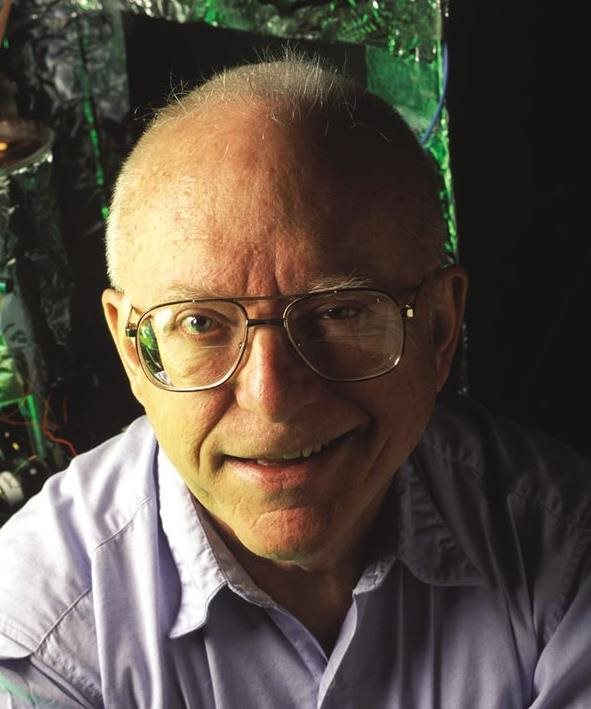John Hall
John Hall

©2005, Geoffrey Wheeler
Nobel Laureate and Optica Honorary Member John Lewis Hall (known by many as Jan) was born on August 21, 1934 in Denver, Colorado. His father was trained as an electrical engineer and worked for the US Bureau of Reclamation on many hydroelectric projects in the US and overseas. His mother was an elementary school teacher and singer. Jan's interests in electricity and radio were supported by his parents, but his research on black-powder rockets was gradually replaced by social activities such as scouts and a church youth group.
Hall attended public schools in Denver, and received a Westinghouse Scholarship to Carnegie Institute of Technology (now Carnegie Mellon University), earning a BS (1956), MS (1958) and PhD (1961) in physics. Under the supervision of Robert T. Schumacher, Hall studied the hyperfine spectrum of interstitial hydrogen atoms in CaF2 crystals using a self-made electron microwave spin resonance spectrometer. While considering various postgraduate opportunities, Hall followed up on a call for applications to be a National Research Council Fellow at the National Bureau of Standards (NBS) in Washington, D.C.
Toward the end of his year as a NRC Fellow, Hall was invited to join others from NBS to start a new research group at the University of Colorado, Boulder. During his 40+ year-tenure at JILA (formerly the Joint Institute for Laboratory Astrophysics), he was responsible for a number of major innovations and developments in laser technology.
Hall has authored more than 230 articles in refereed journals and holds 10 US patents. He is a member of the National Academy of Sciences and a Fellow of Optica and APS. Hall is also a NIST Senior Fellow Emeritus and a JILA Fellow. He has trained numerous graduate students and post-docs in the Physics Department at the University of Colorado, Boulder.
Hall’s JILA work was recognized through a number of awards from NIST, the Department of Commerce, and the US Office of Personnel Management. Hall has been awarded many professional, peer-generated honors, including IEEE Rabi Award. He is also a member of the French Legion of Honor. Hall received the Charles Hard Townes Award in 1994. In 1992, he was awarded the Frederic Ives Medal/Jarus W. Quinn Prize "for recognition of his outstanding contributions to laser frequency stabilization, innovations in high resolution laser spectroscopy, and high accuracy tests of fundamental physical laws." In 2004, Hall received the Max Born Award "for pioneering the field of stable lasers, including their applications in fundamental physics and, most recently, in the stabilization of femtosecond lasers to provide dramatic advances in optical-frequency metrology." Hall became an Honorary Member in 2007.
In 2005, he shared the Nobel Prize in Physics with T.W. Hänsch and Roy Glauber for "contributions to the development of laser-based precision spectroscopy, including the optical frequency comb technique."
He retired from NIST in November, 2004, but is still active in JILA and his consulting company Hall Stable Lasers, LLC. He continues to enjoy electronics hobbies and electro-optical systems design.
Multimedia
Document Created: 26 July 2023
Last Updated: 03 December 2024
